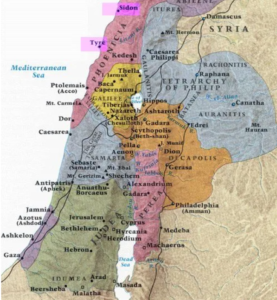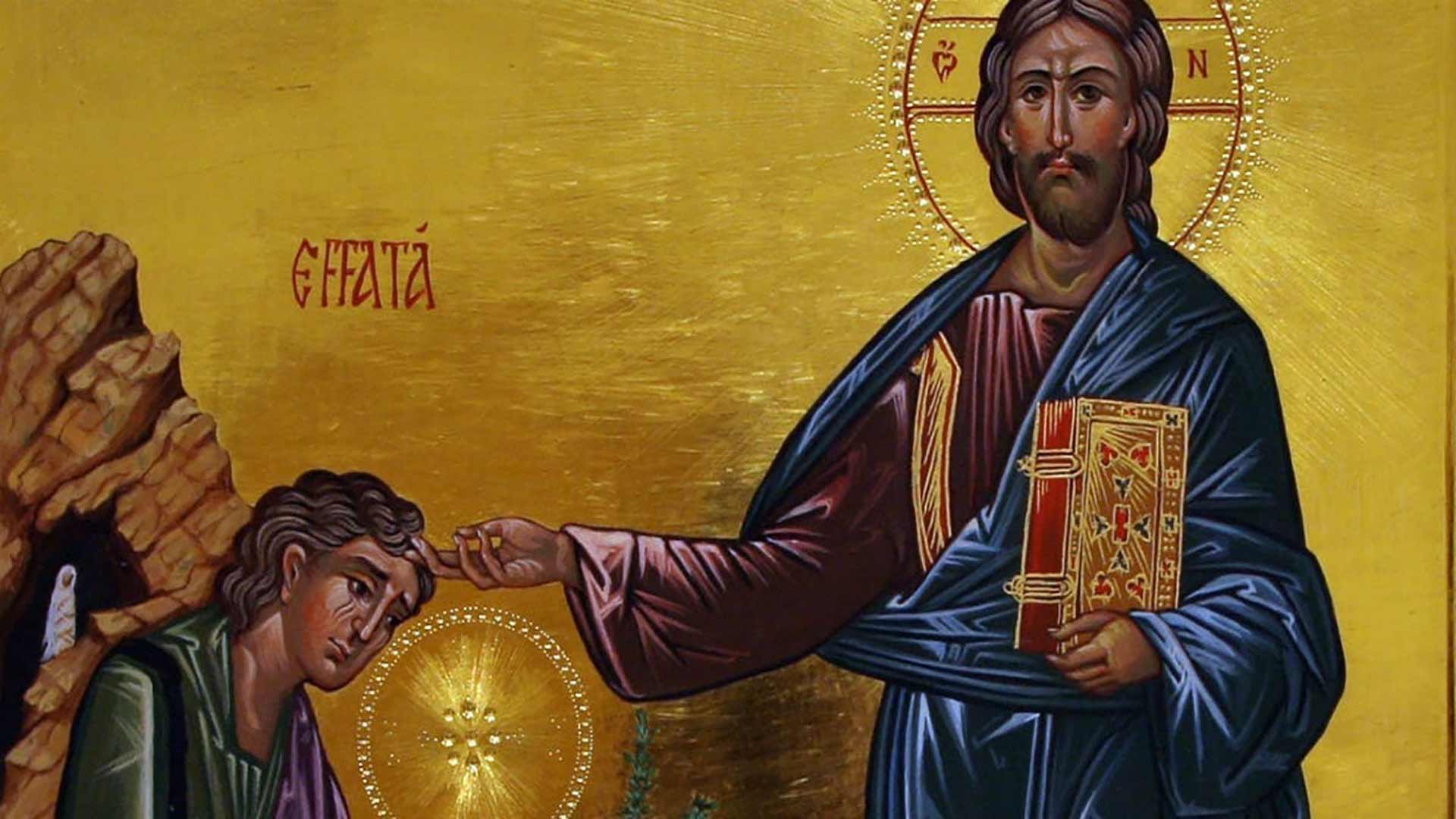Ephphatha… be opened!
Last Sunday, we saw how God expects us to give ourselves over to Him; today we see Him as a merciful Healer who gives Himself over to us. Truly liberating is this attitude of trust and give-and-take. It liberates us socially, psychologically, spiritually. It is refreshing, vivifying, life-giving. It makes us free in Christ.
Freedom and happiness are among the soul’s deepest yearnings. They were ours for free until the fall of our first parents. Then, God made several covenants with man, but they too failed to yield enduring results. Prophet after prophet cried out in the wilderness. So it was with Isaiah; in his ‘little apocalypse’ he dwells on God’s final judgement upon nations hostile to Israel (chapter 34) before he talks of the country’s final salvation (chapter 35).
Today’s First Reading (Is 35: 4–7) is filled with the blessing of salvation. It addresses our fearful hearts. ‘Be strong, fear not!’ says the Lord. So, fortitude is what we must summon up in the face of ostracism, persecution, infirmity, discouragement and disappointment. God promises to cure the blind, the deaf, the mute, the lame. He who is the undisputed Creator of the universe will also let waters break forth and cool the sands of the burning desert.
The good news is that God’s richly metaphorical language translates into very concrete things. We are those weaklings that need His support; the earth is that victim of human recklessness, and which He alone can restore to pristine glory. Miserable as we are every step of the way, we long for His fatherly care and support. He comes to our aid and vindicates us. The Psalmist (145: 6c-7, 8-9a, 9b-10) has it on record that ‘it is the Lord who keeps faith forever.’ And, of course, if God is for us, who can be against us? (Rom 8: 31)
That is what we see in today’s Gospel (Mk 7: 31-37). Our Lord travels through Tyre and Sidon, rich cities (and regions) on the eastern coast of the Mediterranean Sea, in modern-day Lebanon. He took that circuitous route to the Decapolis, a group of ten Greek city-states now located in Jordan, Israel and Syria. He left Galilee because of the fierce dislike that the Pharisees had for Him. He took advantage of his self-imposed exile to instruct His disciples and to announce the Good News to the Gentiles.

In some city of the Decapolis, Jesus was presented with a deaf-mute. They wanted Him to lay His hands on him. Taking him aside from the multitude, Jesus put His fingers into his ears; and with His saliva, He touched the man’s tongue. Then, looking up to heaven, Jesus sighed and said to him: ‘Ephphatha’, that is, ‘Be opened.’ Never mind if that sounds too emphatic to our ears, Our Lord’s gentleness sufficed. It may be noted that He looked up to His Father and very typically ‘charged them to tell no one’ what miracle they had witnessed.
Only St Mark recounts this episode. Scripture scholars say that, instead of merely signaling or uttering a word, Jesus made it a point to touch the ailing organs, as a sacramental sign. And why did He charge them not to tell anyone? This is that ‘Messianic secret’, stated by Matthew and Luke, too, but almost institutionalized by Mark! This Evangelist reports that Jesus forbade the devil from revealing his identity; those healed, from reporting the cure; and the disciples, from revealing to strangers what they had learnt from their Master.
Let us understand that those instructions were designed to rule out wrong notions about Jesus’ ministry. He did not wish to be seen as a political liberator but as a liberator of consciences. He moved the hearts and minds of people and touched the deepest recesses of their souls. He provided them with means to achieve spiritual serenity, not political peace. The cures he wrought were messianic signs, given in response to what the Jews had always expected from a long-awaited Messiah…. But ironically, they saw the signs but did not recognize the Messiah!
The Second Reading (Jam 2: 1-5) is taken from James. He is not to be mistaken for James the Great, brother of John the Evangelist and first apostle to be martyred; nor for the other, lesser apostle of the same name, son of Alpheus. The epistler James, a relative of Jesus and usually called ‘brother of the Lord’, was close to the Apostles but began to believe in Jesus’ divinity only after the Resurrection. He was chief of the Jewish Christian community of Jerusalem.
Finally, the Letter once written to ‘the twelve tribes of the Diaspora’ – more specifically, to the Judeo-Christian members of those diasporic tribes – enjoined them to treat the rich and the poor, the healthy and the sick, the educated and the uneducated with the same graciousness: all had to experience the love of God. The said Letter is now addressed to you and me, with an emphatic message – Ephphatha – a clarion call to open our minds and hearts to the Lord our God and, filled with gratitude for the many blessings and graces received, announce His Good News from the rooftops!
